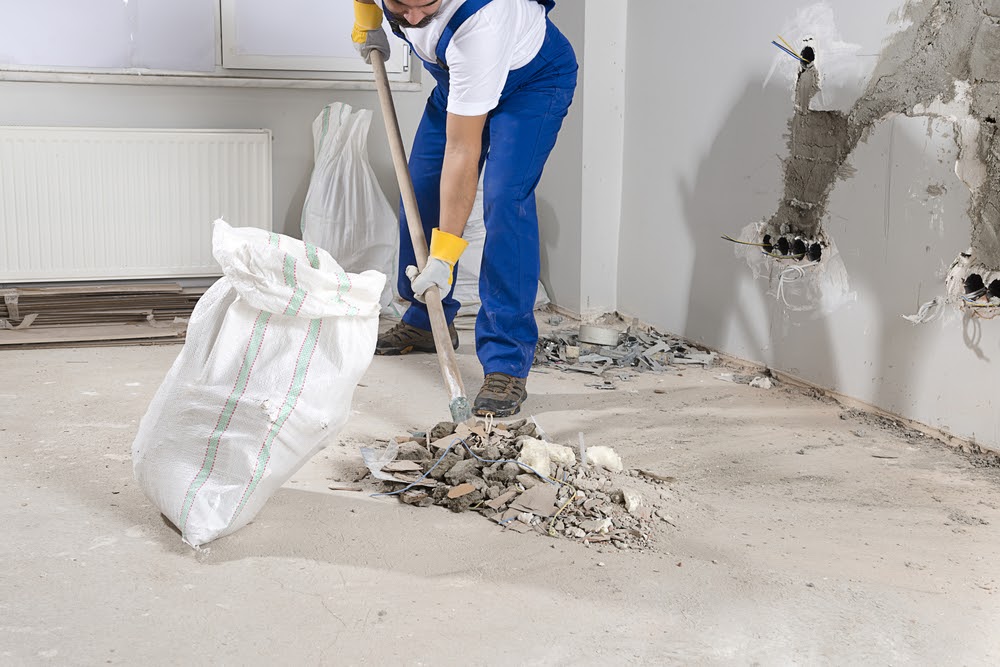
Image Source: Google
Green building practices have gained significant popularity in recent years as more people become aware of the importance of sustainable and eco-friendly design. One crucial aspect of green building is responsible building rubbish removal. Proper waste management not only helps to reduce the environmental impact of construction and demolition projects but also contributes to a healthier and more sustainable living environment. By implementing eco-friendly solutions for rubbish removal, builders and homeowners can minimize their carbon footprint and promote a cleaner and greener future.
One of the key principles of green building practices is to reduce, reuse, and recycle. This concept can also be applied to rubbish removal. By reducing the amount of waste generated during construction or renovation projects, builders can significantly decrease the environmental impact of their activities.
This can be achieved by using materials more efficiently, planning projects effectively to minimize waste, and choosing sustainable alternatives to traditional building materials. Reusing materials whenever possible is another effective way to reduce waste and decrease the need for new resources. Additionally, recycling materials such as metal, wood, and concrete can help divert waste from landfills and conserve valuable resources.
Another eco-friendly solution for responsible rubbish removal is to implement a waste management plan. By developing a detailed plan for handling and disposing of waste, builders can ensure that materials are sorted properly, recycled whenever possible, and disposed of in an environmentally responsible manner. This can help reduce the amount of waste that ends up in landfills and minimize the negative impact on the environment. By working with waste management companies that prioritize sustainability and recycling, builders can make a significant contribution to the green building movement.
Composting is another effective eco-friendly solution for responsible rubbish removal. Organic waste such as food scraps, yard trimmings, and other biodegradable materials can be composted to create nutrient-rich soil for landscaping and gardening projects. Composting not only helps to reduce the amount of waste that goes to landfills but also provides a natural and sustainable way to recycle organic materials. By incorporating composting into their waste management practices, builders can turn waste into a valuable resource and contribute to a more circular economy.
Choosing sustainable building materials is also an important aspect of responsible rubbish removal. By selecting materials that are durable, energy-efficient, and made from renewable resources, builders can reduce the environmental impact of their projects and create healthier indoor environments. Materials such as bamboo, reclaimed wood, recycled glass, and low-VOC paints are eco-friendly alternatives that can help minimize waste and promote sustainability. By prioritizing sustainable materials in their construction projects, builders can minimize the need for waste removal and contribute to a more eco-friendly building industry.
Finally, educating and engaging stakeholders in responsible rubbish removal practices is essential for promoting a culture of sustainability in the building industry. By raising awareness about the importance of proper waste management and providing training on eco-friendly solutions, builders can empower their teams to make a positive impact on the environment. Encouraging collaboration with waste management companies, local recycling facilities, and community organizations can also help builders integrate sustainable practices into their projects and reduce their ecological footprint. By working together towards a common goal of responsible rubbish removal, builders can contribute to a more sustainable future for generations to come.
In conclusion, green building practices offer a wide range of eco-friendly solutions for responsible rubbish removal. By implementing strategies such as reducing, reusing, and recycling materials, developing waste management plans, composting organic waste, choosing sustainable building materials, and educating stakeholders, builders can minimize their environmental impact and promote a more sustainable building industry. By prioritizing responsible rubbish removal practices, builders can help create a cleaner, greener, and healthier environment for current and future generations.